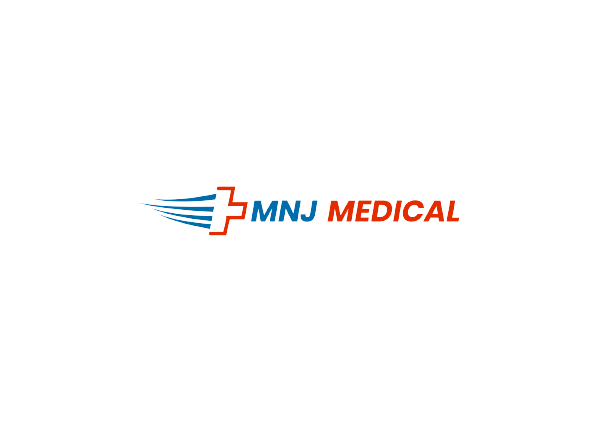Selecting the right wheelchair transportation provider is crucial for ensuring safe and comfortable travel. With so many options available, asking the right questions can help you make an informed decision. Here, we explore essential questions to guide you through this process.
1. Experience and Expertise
When considering a wheelchair transportation provider, one of the first questions to ask is about their experience within the industry. An experienced provider will have the necessary knowledge and skills to handle diverse needs effectively. They should be knowledgeable about handling different types of wheelchairs and understand the specific requirements of transporting individuals with mobility challenges. It is worthwhile to inquire if they have experience dealing with similar cases, such as handling electric scooters, as noted in situations where transportation issues caused missed medical appointments due to drivers being uncomfortable securing such devices reliance on Medicaid’s non-emergency medical transportation.
Additionally, ask if the provider has specialized in wheelchair transportation. Specialization is important because it often equates to a deep understanding of the unique challenges faced by passengers who use wheelchairs or other assistive devices. A company with a proven track record in providing wheelchair transportation services is more likely to offer a smooth and secure ride, ensuring that the experience is not only safe but also respectful and dignified for the passenger. To gain a deeper appreciation of best practices in the industry and challenges faced, reviewing insights from NEMT providers might provide valuable perspectives.
2. Vehicle Availability and Condition
Inquire about the types of vehicles available and their overall condition, as well-maintained, accessible vehicles are crucial for a safe and comfortable journey. Whether the vehicle can adequately accommodate your specific type of wheelchair—be it manual or electric—as well as any additional equipment, should be a key consideration. Vehicles should ideally have ramps or hydraulic lifts that conform to safety standards, ensuring the comfortable and secure transport of passengers. Reliability is vital, as illustrated by issues encountered when transportation providers could not meet the needs of mobility device users when integrated into healthcare delivery systems.
Understanding what safety and accessibility features the vehicles possess can be crucial. This includes checking if the vehicles are equipped with adjustable securement points for different wheelchair models, and if there are routine maintenance checks. Providers should be prepared and equipped to minimize any discomfort or safety risks that may arise during transport. Overall, a provider’s commitment to maintaining their vehicles in top condition demonstrates a dedication to passenger safety and comfort.
3. Driver Training and Certification
When it comes to reliable wheelchair transportation, the importance of well-trained and certified drivers cannot be overstated. Drivers should possess specialized training in assisting individuals with disabilities, which encompasses both technical skills and sensitivity training. The former involves mastering the usage of safety equipment, while the latter ensures empathy and respect towards passengers’ needs and preferences, as discussed in best practices for NEMT services.
Ensure that the drivers are not only trained to transport individuals using wheelchairs safely but that they also understand the psychological and social aspects of their service. This understanding includes respecting passenger privacy, dignity, and autonomy, and acting in accordance with federal regulations such as the Americans with Disabilities Act (ADA). Training programs should not just aim at technical prowess but also at imbibing compassion, building a trustworthy relationship with clients.
4. Insurance and Safety Measures
Understanding the provider’s insurance coverage and safety measures can offer peace of mind. A competent service will have comprehensive insurance policies that cover various scenarios, providing financial protection to users in case of unforeseen events. Equally critical are the safety measures they have in place to protect passengers during transport, including vehicle inspection routines and driver background checks. Such practices assure you that the company prioritizes the safety and well-being of its passengers.
Another essential aspect is their adherence to safety regulations, including compliance with ADA guidelines. This demonstrates an organizational commitment to providing a secure and accessible service for individuals with mobility challenges. As healthcare practitioners recognize transportation as a social determinant of health, health policy changes now increasingly incentivize such practices, further underscoring the relevance of working with providers who align with these standards.
5. Booking and Scheduling Flexibility
Flexibility in booking and scheduling is another factor to consider when choosing a wheelchair transport service. Whether they offer options for same-day bookings or have mechanisms in place to adjust schedules in response to emergencies can significantly impact your satisfaction with the service. Efficient providers incorporate technology to enhance these capabilities, similar to how integrated NEMT systems reduced wait times and costs in healthcare networks by utilizing a unified vendor approach.
6. Pricing and Payment Options
Discussing pricing structures and available payment options is vital to avoid any surprises. Thoroughly understanding the cost implications upfront allows for better financial planning and budgeting. Providers with transparent pricing models and multiple payment options, including insurance, offer a higher level of convenience and trust. Make sure to learn more about cost-effective solutions and pricing options on our website for more clarity.
7. Customer Reviews and Testimonials
Customer reviews and testimonials are valuable resources for gaining insights into the provider’s reliability and service quality. Previous clients’ experiences can be informative and guide you in anticipating the level of service you might receive. In some instances, testimonials can highlight issues that might otherwise be overlooked, as encountered in situations of delayed transportation services causing missed appointments by NEMT service users.
8. Emergency Protocols
Emergency preparedness is a non-negotiable aspect of choosing a wheelchair transportation provider. Inquiring about the protocols in place for emergency situations provides assurance that you are in capable hands. The efficacy of these protocols can significantly affect the outcome in critical scenarios, ensuring that timely and appropriate responses are executed, steering clear of potential jeopardy. A comprehensive emergency response plan should include trained personnel, understanding of emergency contacts, and procedures that align seamlessly with general safety measures established within the industry.
9. Personalized Services
Lastly, understanding any personalized services and accommodations the provider offers can make a crucial difference in your travel experience. Personalized services could involve tailor-made transportation solutions that consider the client’s unique preferences and requirements. Providers adept in offering individualized care tend to uphold higher quality standards, ensuring every customer feels comfortable and respected throughout their travel experience. By customizing their services, they transform the journey from mere transportation to a supportive and considerate personal experience.

